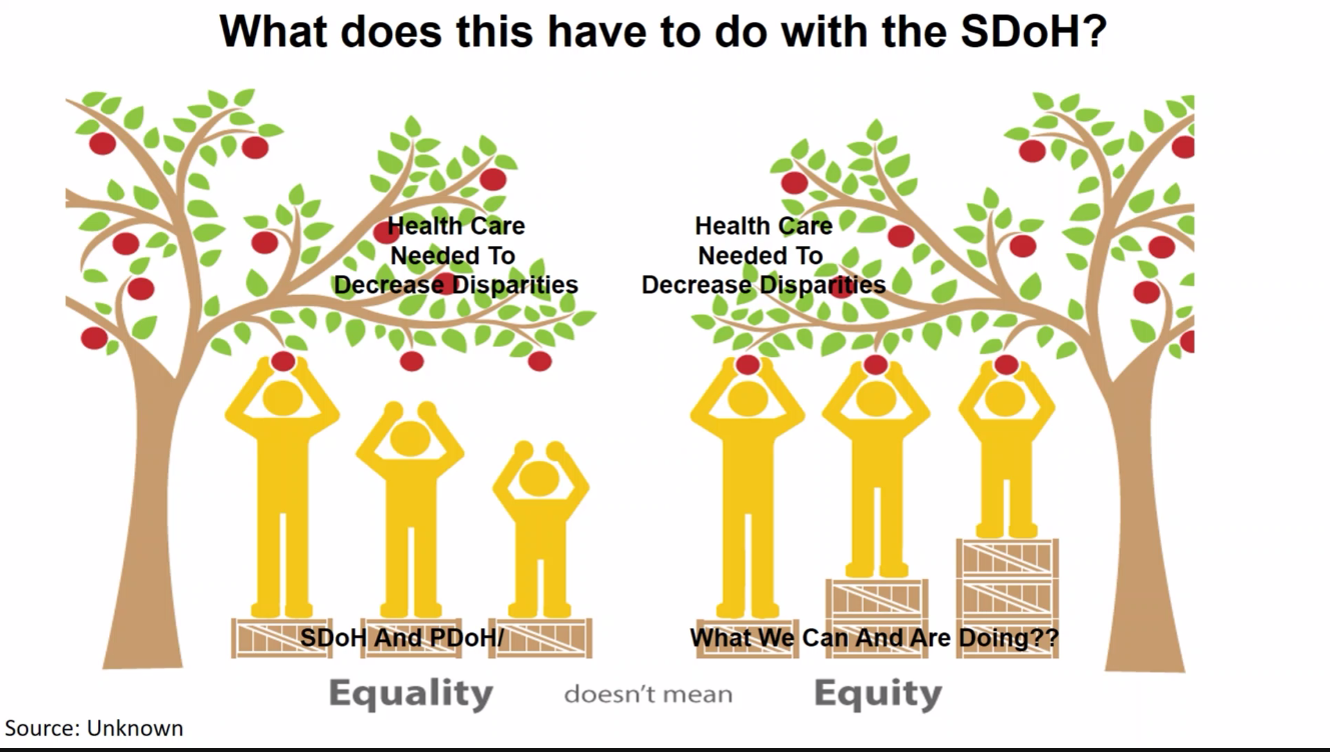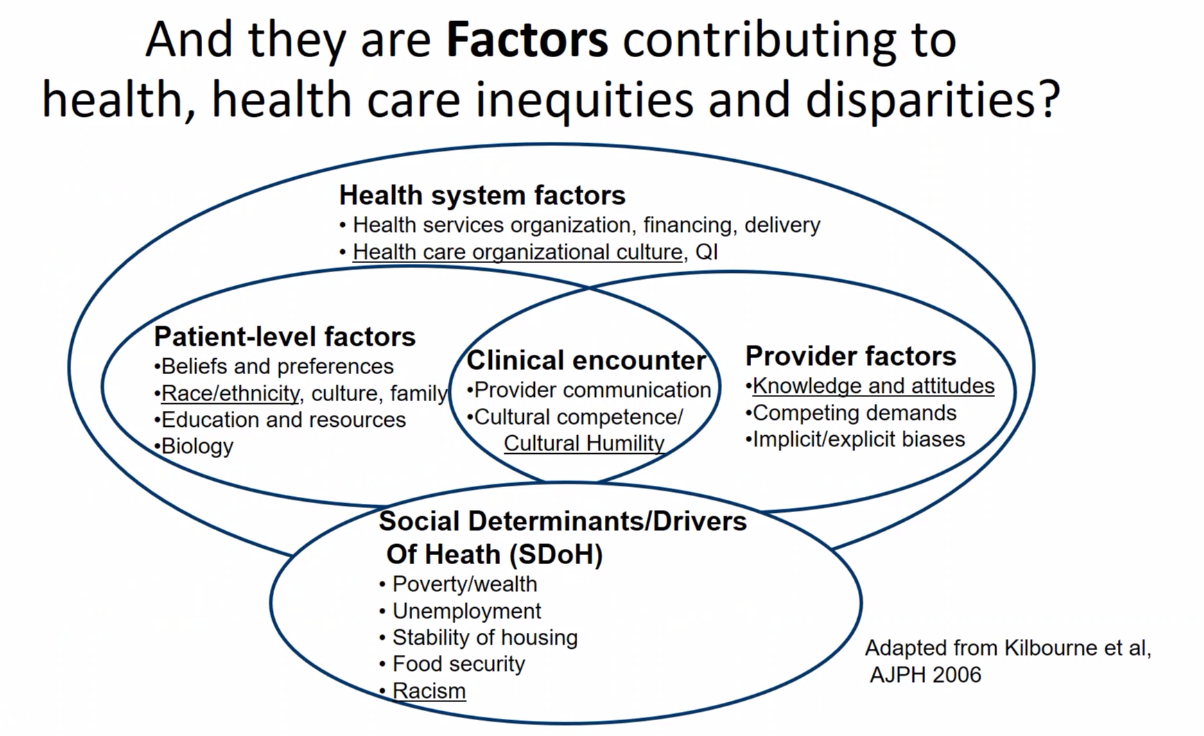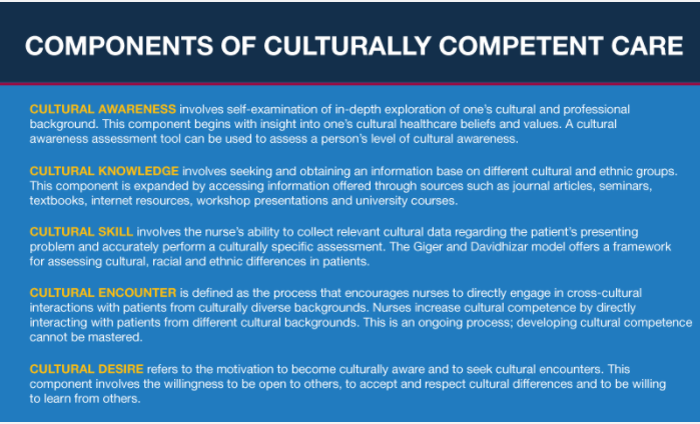D&I Articles of Interest
 Equity and QualityImproving Health Care Delivery Requires BOTH.pdf
Equity and QualityImproving Health Care Delivery Requires BOTH.pdf
 Social and Structural Determinants of Health inequities in Maternal Health.pdf
Social and Structural Determinants of Health inequities in Maternal Health.pdf
 US Health Care Spending by Race and Ethnicity, 2002-2016.pdf
US Health Care Spending by Race and Ethnicity, 2002-2016.pdf
 Trends in Differences in Health Status and Health Care Access.pdf
Trends in Differences in Health Status and Health Care Access.pdf
 Does Race Interfere With the Doctor-Patient Relationship.pdf
Does Race Interfere With the Doctor-Patient Relationship.pdf
 2019 NATIONAL HEALTHCARE QUALITY AND DISPARITIES REPORT.pdf
2019 NATIONAL HEALTHCARE QUALITY AND DISPARITIES REPORT.pdf
 National Healthcare Quality and Disparities Report - Chartbook on Patient Safety.pdf
National Healthcare Quality and Disparities Report - Chartbook on Patient Safety.pdf
 The Importance of Diversity and Inclusion in the Healthcare Work Force.pdf
The Importance of Diversity and Inclusion in the Healthcare Work Force.pdf
 Hospitals try to cross cultural divides to build trust in COVID-19 vaccination.pdf
Hospitals try to cross cultural divides to build trust in COVID-19 vaccination.pdf
 Race and PharmacogenomicsPersonalized Medicine or Misguided Practice.pdf
Race and PharmacogenomicsPersonalized Medicine or Misguided Practice.pdf
 Recalibrating the Use of Race in Medical Research.pdf
Recalibrating the Use of Race in Medical Research.pdf
 Strategies to Mitigate Clinician Implicit Bias Against Sexual and Gender Minority Patients.pdf
Strategies to Mitigate Clinician Implicit Bias Against Sexual and Gender Minority Patients.pdf
 Being Mindful of Cultural and Linquistic Diversity in Everyday Practice.pdf
Being Mindful of Cultural and Linquistic Diversity in Everyday Practice.pdf

Cultural Competency
A Treatment Improvement Protocol: Improving Cultural Competence (PDF, 4.21 MB)
Best practice guidelines for treatment of substance use disorders, with a focus on cultural competence. Substance Abuse and Mental Health Services Administration, U.S. Department of Health and Human Services
A field guide to create a more welcoming, safe and inclusive environment that contributes to improved health care quality for lesbian, gay, bisexual, and transgender (LGBT) patients and their families. The Joint Commission
Center for Multicultural Health
Promotes the health and well-being of people in diverse communities
Clear Communication: Cultural Respect
A description of what is cultural respect and answers to frequently asked questions about cultural respect in the context of National Institutes of Health. National Institutes of Health, U.S. Department of Health and Human Services
Cross Cultural Health Care Program
Addresses broad cultural issues that impact the health of individuals and families
Cultural and Linguistic Competency - Office of Minority Health. Web site with guides, national standards, policies, initiatives, laws, reports, and training tools
Office of Minority Health, U.S. Department of Health and Human Services
Cultural Sensitivity, A Pocket Guide for Health Care Professionals -Full text – Joint Commission - 2012
Diversity and Cultural Competency
Link to resources on cultural competency. Administration on Aging, U.S. Department of Health and Human Services
List of resources, blogs, and newsletters about increasing cultural competency training and diversity in governance and leadership. American Hospital Association
Ethnicity, Culture and Alcohol
Training module to familiarize people with literature that relates alcohol issues to race, ethnicity, and culture. National Institute on Alcohol Abuse and Alcoholism
Information about cultural beliefs and medical issues for the health care of recent immigrants. Harborview Medical Center, University of Washington
Compilation of Web sites, reports, guidelines, and training tools. The Joint Commission
Minority Health and Health Equity Archive
An electronic archive for digital resource materials in the fields of minority health and health disparities research and policy. University of Maryland Center and University of Pittsburgh
National Center for Cultural Competence (NCCC)
Resources for culturally and linguistically competent service delivery systems. Georgetown University Center for Child and Human Development
A Physician’s Practical Guide to Culturally Competent Care
Self-directed training course for physicians, physician assistants, and nurse practitioners. CME and CEU credits available. Office of Minority Health, U.S. Department of Health and Human Services
Reducing Disparities in Health Care
A list of resources for physicians to reduce health disparities, research on eliminating health care inequalities, and work by the American Medical Association to reduce health care disparities. American Medical Association
State Minority Health Contacts
Interactive map locating minority health points of contact in states and territories. Office of Minority Health Resource Center, U.S. Department of Health and Human Services
Continuing education programs for nurses and physicians. Office of Minority Health, U.S. Department of Health
Social Determinents of Health

Factors contributing to health care inequities

IMPROVING CULTURAL COMPETENCIES
The Heckler Report, also called the Report on Black and Minority Health, was released in 1985 to mobilize elimination of health disparities.
The federal Office of Minority Health was established in 1986 to implement the Heckler Report.
The Healthy People 2030 agenda, which includes the goal of eliminating health disparities, released in 2000 with the latest update in 2020.
National CLAS Standards, a 2000 federal report outlining culturally and linguistically appropriate services (CLAS) in health care, was updated in 2013.
LEP Guidance, issued in 2000 and in 2003, addresses working with people with limited English proficiency (LEP).
Think Cultural Health launched in 2004 as a clearinghouse of resources where healthcare professionals can find culturally and linguistically appropriate services.

